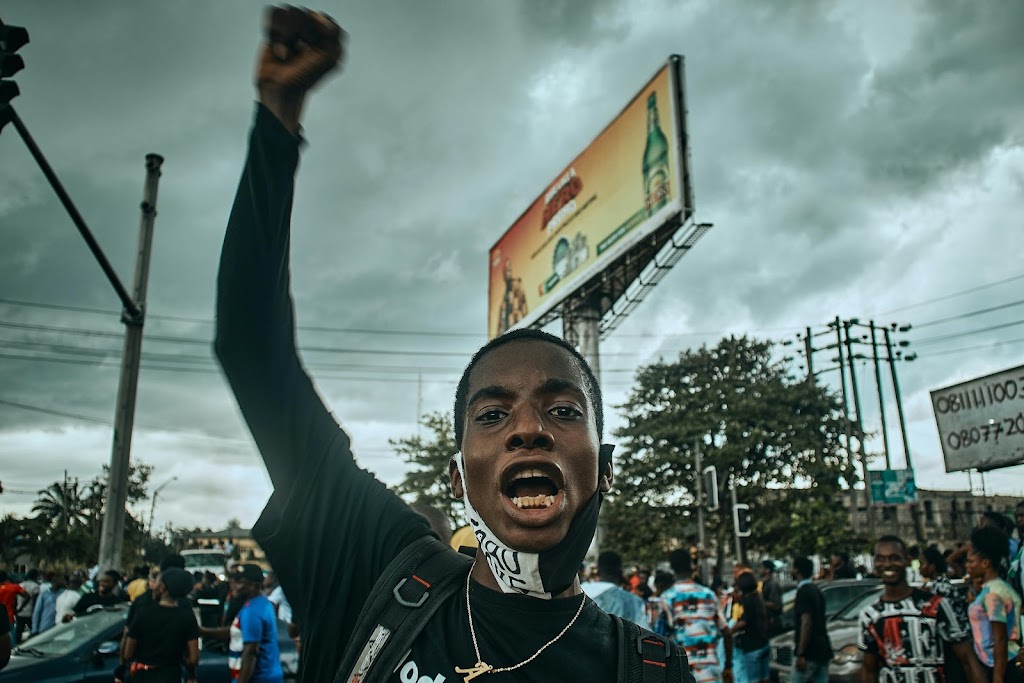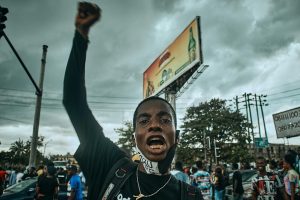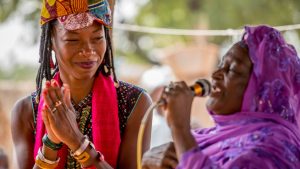Author: Eze Samson Enyinna
As a new student in one of the higher institutions in the South East region of Nigeria, during our tour around the school, our tour guide, who was Igbo, assumed we all were Igbos, probably because 98% of the students in the institution were Igbos. Hence, he addressed us in English and Igbo. At some point, the Igbo outstripped the English and became so prominent that one of us humorously called out, “One Nigeria please!” Later, we learned that he is an Ibibio man from Akwa Ibom state. Reflecting on this experience, I pondered what he meant by saying One Nigeria. Why do we talk about One Nigeria (sometimes One Africa) and not one Germany, One USA, or even One France? Does it imply that unlike Nigeria and some other African countries, the countries outside Africa are all people with the same culture, tradition, language, and history? What do we genuinely mean when we express the desire for One Nigeria?
A Nigeria that works and walks Together
My friend and coursemate who shouted “One Nigeria” indirectly and metaphorically conveyed a clear message, “I do not understand you; please help me understand and include me along with you and my fellow new students.” When we say One Nigeria, we envision a Nigeria that works and walks together; with one heart, mind, and vision. A Nigeria where we all understand ourselves and are willing to compromise for the common good, regardless of tribe or ethnic origin. We talk about a Nigeria where everyone is carried along.
Understanding here means that Nigerians value life and human relationships, thinking beyond individual interests and considering everyone, regardless of their origin. When an Igbo thinks, “Yes, I am Igbo, but what can I do for my Yoruba brother, my Ibibio sister, my Hausa friend?” not just about himself and his fellow Igbos, and the cycle continues. An Hausa man says, “Maybe General Nzogwu Chukwuma planned the first coup, but it doesn’t make all the Igbos bad people.” Ethnic bias handed down by our ancestors has sometimes clouded our sense of understanding and judgment, but incidents occasionally arise that challenge these biases, especially in the political sphere. One Nigeria implies a Nigeria with an understanding that transcends culture and language, prompting debates about its feasibility.
This element of understanding was what colonial Nigeria lacked, but we might not have felt it as much because the British government was present, in a way, covering up these issues. The British applied the system of divide and rule in a country they intended to unite, creating an ironic situation. This understanding and the practice of carrying one another along is still lacking in independent Nigeria from 1960 till date. One Nigeria may never be fully realized as long as individual citizens and different tribes fail to understand themselves first as fellow Nigerians and second as different groups who are collectively one.
Why we talk of one Nigeria (Africa) and not one USA, China, or Germany
I include Africa in the discussion because, to some extent, this issue extends to other African countries and the continent as a whole. Although Africa is making better progress in uniting its countries compared to Nigeria uniting its people, it’s ironic that Nigeria is seen as a leader in the push for African Unity. The answer to why we discuss One Nigeria and not One Germany, One USA, or One France is straightforward. Other countries in different continents have reached a level of understanding that Nigeria (and Africa) has not yet attained. This understanding is reflected in the relationship between society and politics. Other countries have mastered, to a great extent, the art of making compromises for the greater good, understanding and accepting cultural and individual differences. It’s essential to note that this doesn’t imply perfection, but they have made significant progress in working and walking together.
The Practicality of One Nigeria
The question that arises now is, “Is One Nigeria practicable?” Can we genuinely understand ourselves, tell the truth, and accept that truth? If it is practicable, why are we not practicing it? If, fortunately, it can be practiced, how do we go about it? One Nigeria is indeed practicable, but our challenge lies in the historical mistakes made by the British, mistakes that persisted even after independence. These errors have deeply affected our understanding as Nigerians, destabilizing our society. These manipulations have led to the unfortunate perception of some Nigerians exploiting this situation to their advantage in the realm of politics, separating the Nigerian society (the people of Nigeria) from politics (the leaders of Nigeria). Nigeria finds itself in its current state not because of a lack of understanding as before, but because of the manipulation by a few who prioritize individual gain over the collective welfare of Nigerians.
They refuse to acknowledge the progress made in achieving One Nigeria due to their selfish interests, using divisive tactics to maintain their positions of power. Incidents like the purported swallowing of money by a snake and a bullion van missing its way to the bank highlight the challenges that hinder the country’s unity. Despite these challenges, Nigerians have recorded commendable success in fostering unity. Recent events have demonstrated instances where Nigerians unite, driven by success, suffering, or shared entertainment. Events like Hilda Baci’s Cokathon for the Guinness world record, Tiwa Savage and Yemi Alade’s international performances, and the #EndSars# protest in October 2020 showcase moments when Nigerians come together, transcending ethnic barriers for a common cause.
In conclusion, achieving One Nigeria requires a fundamental shift in our understanding of life and humanity. It involves applying this new understanding in the Nigerian society and instilling it in the younger generation. Rather than dwelling on why Nigeria is divided, we should focus on how we can build One Nigeria together. Teaching our people that our collective condition as Nigerians will improve when we set aside prejudices and work together is crucial. Confronting unjust policies and reminding politicians that they are accountable to the people will further contribute to the realization of One Nigeria. It is an ongoing journey that demands continuous efforts to bridge gaps and build a united nation.



